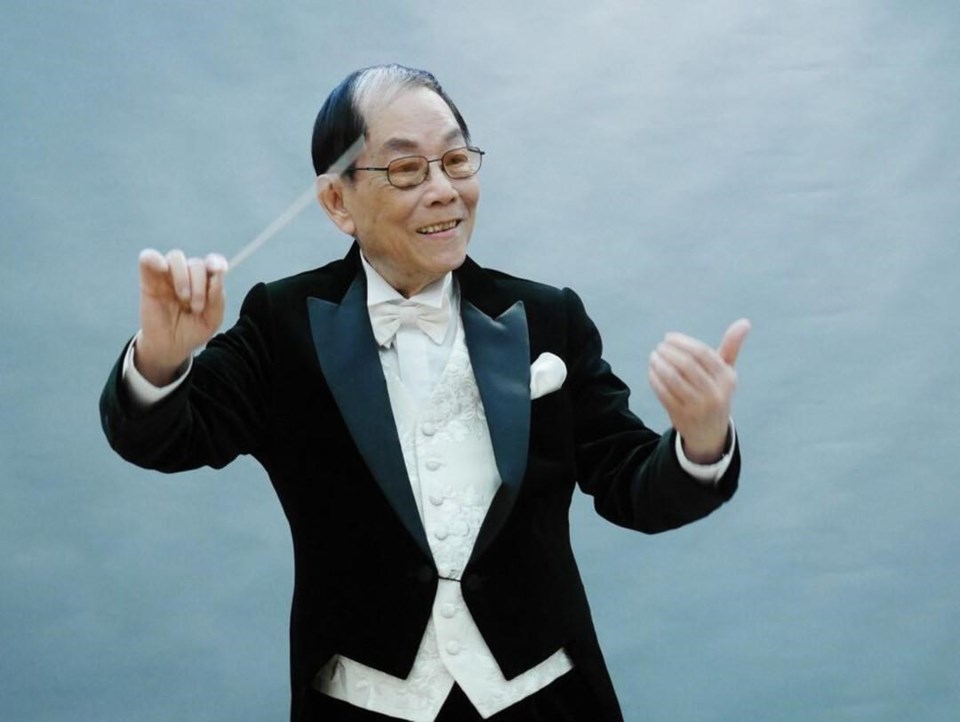VANCOUVER — Renowned composer Joseph Koo, whose music helped form the soundtrack for what his family called the "Golden Era" of Hong Kong culture in the 1970s and '80s, has died in a Metro Vancouver hospital.
Koo's family said in a statement that he died of natural causeson Tuesday, six days short of his 92nd birthday.
The composer is closely associated with the heyday of Cantopop, writing songs for some of the biggest names of the Cantonese music genre as well as scoring movies including Bruce Lee's "Way of the Dragon" and "Fist of Fury."
He also wrote "Below the Lion Rock," the theme tune for a popular '70s TV series of the same name, which became an unofficial anthem for Hong Kong.
Koo's family said he attended the Berklee College of Music in Boston before returning to Hong Kong in the '60s to launch his music career.
They said he immigrated to Canada in the 1990s but continued his work in the Hong Kong music scene.
"He will be dearly missed within the music industry and by Chinese communities around the world," the family's statement said.
Koo’s son Ken, 64, said his father was a quiet "man of few words."
That was in contrast to his longtime collaborator and lyricist James Wong Jim.
"One is shyer and the other is more flamboyant, it's a very good balance. So together, they make a very good duo," Ken Koo said.
Koo wrote songs for stars including Leslie Cheung, Anita Mui and Roman Tam but he was also known for his film and TV work. His first popular song was "Dream" for 1961 Hong Kong film "Love Without End."
Ken Koo said his father wrote more than 1,000 songs, popularizing Cantonese music and capturing the spirit of Hong Kong at a time of great optimism, when “every day was a better day than yesterday.”
The songs resonated with generations of Hong Kongers and Chinese communities worldwide, he said.
Singer Annabelle Louie, a star in Hong Kong in the 1980s whose songs included two written by Koo, said the composer's melodies had not aged.
"I've done a lot of performances in Canada and the States, so whenever I do his songs, there is always a climax, people just love it," said Louie.
She said the "Godfather of Cantopop" was also a mentor.
"When I was working with him in a recording studio, he gently guided me on how to sing the song and he also left room for me to improvise. He is a really good teacher," said Louie. "His influence isn't just limited to the '70s and '80s, he also inspired the younger generation."
Ken Koo, who lives in Vancouver, said at the peak of his father's career, demand for his work was so great that he only slept three to four hours per day.
He divided his time between Canada and Hong Kong but he retired to Vancouver permanently four years ago.
“We spent a great amount of time here doing a lot of things that are very memorable, like going to Campbell River for fishing trips. We had a lot of really great moments in Canada,” said Ken.
He said his father died in Richmond Hospital.
Hong Kong's secretary for culture, sports and tourism, Kevin Yeung, paid tribute to Koo in a statement.
"Joseph Koo's works are evergreen pieces that have been a significant part of Hong Kong people's lives over the years, and have enriched the lives of Chinese people around the world," he said.
"His spirit and the memorable touching melodies he created will be passed down from one generation to the next. We shall fondly remember him."
Koo is survived by his widow Ella Tsang Noi Koo, son Ken, daughter Sally Koo, his brother Howard Ku and sister Koo Mei.
This report by The Canadian Press was first published Jan. 5, 2023.
This story was produced with the financial assistance of the Meta and Canadian Press News Fellowship.
The Canadian Press




